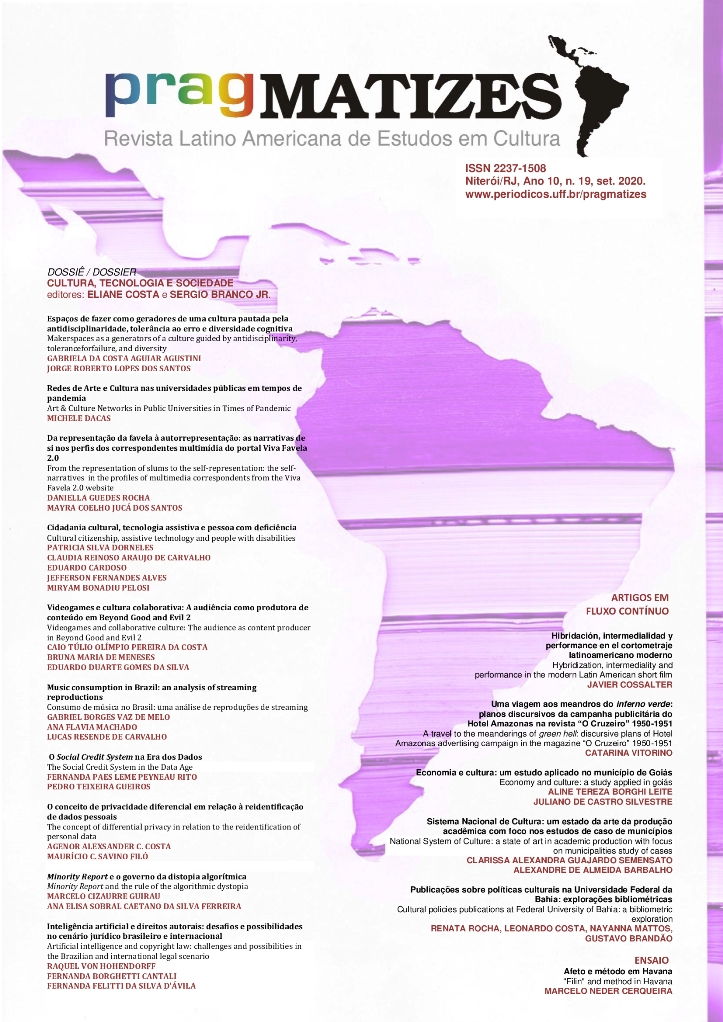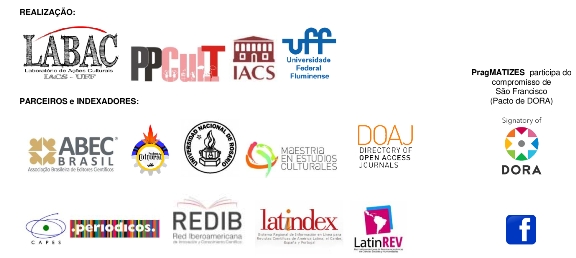Art & Culture Networks in Public Universities in Times of Pandemic
DOI:
https://doi.org/10.22409/pragmatizes.v10i19.42633Keywords:
virtual networks, public universities, art and culture, COVID-19Abstract
If, on the one hand, public universities have been active in the front line of combat to the new coronavirus, in the other, the policy of dismantling public education continues to target them. In recent years, technological advances have also opened space for the circulation of fake news or ideas impregnated with anti-intellectual and anti-scientific feelings. Those narratives have been polluting the most conservative part of society towards belittling the overall public institutions and the service they provide, in particular the educational, cultural, and public health, legitimizing the austerity measures in those fields. However, even in this pandemic scenario that is plaguing Brazil, we found in the public universities, alongside with the universal public health system (SUS), one pillar for facing the current sanitary crisis. There are several fronts on witch public universities work across the country to combat COVID-19, by contributing to epidemiological studies, collective health practices, psychological care, development of equipment through engineering, and also with the circulation of art and cultural initiatives. The sanitary system into health policies must include the latter recently recognized by the World Health Organization (WHO) seeing as it provides well-being and improves the condition for coping with some diseases. In this sense, many public universities are using their collaborative networks and accumulations of practices and knowledge in art and culture to promote virtually well-being during the pandemic. It is these specific actions that cross the field of culture and public education through the appropriation of unknown communication technologies in a health crisis that will be the basis for reflection in this study.
Downloads
References
CASTELLS, Manuel. A Sociedade em Rede. São Paulo: Paz e Terra, 2005.
CASTELLS, Manuel. Comunicación y Poder. Madrid: Alianza Editorial, 2009.
FANCOURT, Daisy, FINN, Saoirse, Health Evidence Network synthesis report 67: What is the evidence on the role of the arts in improving health and well-being? A scoping review, WHO (World Health Organization), Regional Office for Europe, 2019.
FRAGOSO, Suely; RECUERO, Raquel; AMARAL, Adriana. Métodos de pesquisa para internet. Porto Alegre: Sulina, ed.1, 2012.
GOBIRA, Pablo; ROLLA, Marco Paulo; SIMON DA SILVEIRA, Yuri, LEMOS, Flávia. Arte e cultura na universidade: passos na construção de uma política de cultura, In: ____ (orgs.). Refletindo sobre a cultura: Política cultural, memória e universidade, Belo Horizonte: EduEMG, 2017. p. 138-160.
JENKINS, H. Cultura da Convergência. São Paulo: Aleph, 2009.
LEHER, Roberto. Autoritarismo contra a Universidade: O desafio de popularizar a defesa da educação pública. São Paulo: Fundação Rosa Luxemburgo, Expressão Popular, 2019.
LEMOS, A; LÉVY, P. O futuro da internet: em direção a uma ciberdemocracia planetária. São Paulo: Paulus, 2010.
Published
How to Cite
Issue
Section
License
By forwarding an original to PragMATIZES, the authors agree that the copyright related to it is transferred to the Publishing. Articles and other writings are made available in PDF format from their publication, and they can be downloaded to institutional repositories and personal pages, provided that with their proper bibliographic indication.



